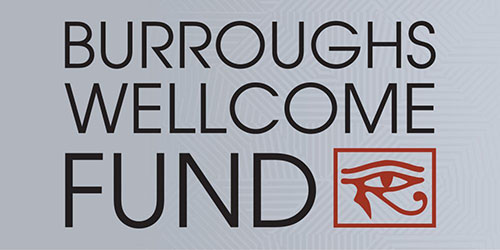RESEARCH TRIANGLE PARK, N.C.—The Burroughs Wellcome Fund is pleased to announce the recipients of the 2013 Investigators in the Pathogenesis of Infectious Disease. The five-year $500,000 award provides support to assistant professor-level researchers conducting innovative investigation in infectious disease.
“Research to understand the critical interactions of hosts and pathogenic and non-pathogenic microbes is difficult and risky—you have to get at least two organisms’ systems under control,” said BWF President Dr. John Burris. “We are pleased to provide funding to creative researchers to gain critical insight and data.”
The Investigators in the Pathogenesis of Infectious Disease was launched in 2002. The program provides opportunities for assistant professors to bring multidisciplinary approaches to the study of human infectious diseases. The award encourages and supports ambitious early career faculty to take on problems at the points where human and microbial systems connect. The program supports research that sheds light on the fundamentals that affect the outcomes of hosts’ and microbes’ ongoing colloquy and commerce, for example on how colonization, infection, commensalism and other relationships play out at levels ranging from molecular interactions to systemic ones. By pressing toward an in context understanding of how pathogenesis begins, the program aims to stimulate broader thinking about the unifying principles by which health is maintained or pathology is developed in our microbe filled lives.
The 2013 Investigators in the Pathogenesis of Infectious Disease are:
Abraham Brass, M.D., Ph.D.
University of Massachusetts Medical School
Defining dengue virus’s dependencies: discovery and characterization of host factors required for viral replication
Dustin Brisson, Ph.D.
University of Pennsylvania,
Evolution of original antigenic sin in lyme disease
Michael Federle, Ph.D.
University of Illinois-Chicago
Signal jamming of bacterial pathogens as an antivirulence strategy
Xiarong Lin, Ph.D.
Texas A&M University
Fungal adhesins in microbial communication and pathogenicity
Suzanne Noble, M.D., Ph.D.
University of California-San Francisco
Discovery of a cell type switch that drives fungal-mammalian commensalism
Sara Sawyer, Ph.D.
University of Texas-Austin
Genetics of viral species tropism
Emily Troemel, Ph.D.
University of California-San Diego
Microsporidia virulence factors exploit host cell physiology
David Weiss, Ph.D.
Emory University
Novel RNAi-like system controls bacterial innate immune evasion and virulence
Felix Yarovinsky, M.D.
University of Texas Southwestern Medical Center
A new arm of innate immunity: TLR-independent neutrophil-IFN-gamma in host protection against microbial infection
Liang Zhou, M.D., Ph.D.
Northwestern University
Role of environmental sensor Ahr in host-pathogen interaction
The Fund’s investment in infectious disease research has had a long tradition of supporting work in under-served systems, particularly where toolsets are not fully developed and where driven young researchers can play an important role in building emerging fields. Our support in the 1980s focused on work in parasitology, and was broadened in the 1990s to include mycology. After the 2000 Terrain Mapping, the program shifted to its current focus on the study of pathogenesis itself, providing opportunities for researchers working in viral and bacterial systems as well as those in the eukaryote systems funded before.
###
The Burroughs Wellcome Fund is a private, independent foundation located in Research Triangle Park, NC. BWF is dedicated to advancing the biomedical sciences by supporting research and other educational endeavors.
Media Contact: Russ Campbell at 919/667-8866 or news@bwfund.org
Deadline: 2014 Investigators in the Pathogenesis of Infectious Disease


Comments are closed.